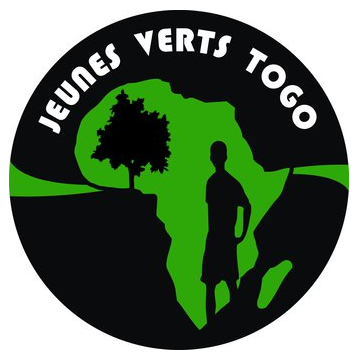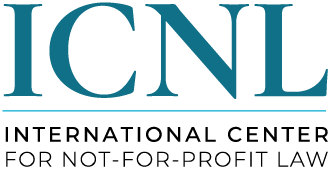The European Commission (EC) is offering Grants to Support the Harmonization of Pan-African Electoral Capacities. The ongoing reform of the AU, in particular at the Political Affairs Peace and Security Department (PAPS) of the AU Commission (AUC), offers an opportunity to develop cooperation mechanisms that bring together a diversity of electoral practitioners under a common set of principles and objectives. To this end, it is important to engage more systematically with the RECs that also conduct electoral observation and to promote the harmonization of their electoral practices with those of the AU. The objective is to encourage the implementation of the principle of subsidiarity that could result in a more efficient division of labour between the continental and regional levels. For this purpose a Continental Community of Electoral Practitioners should be established and strengthened to engaged with various AU organs, RECs and a variety of other electoral stakeholders (civil society, national electoral management bodies - EMBs, academia, experts, etc.) in a structured and collaborative fashion to offer a space for the exchange of knowledge and best practices, as well as for the collective analysis of lessons learned resulting from electoral operations.
In this context and based on the findings of the evaluation of the AUCapEO project, the EU designed a new intervention to “Support the Harmonization of pan-African Electoral Capacities”. It aims at providing continuous assistance to the Democracy and Elections Unit (DEU) of the AUC/PAPS while also engaging with a wide range of key electoral actors at regional and continental level, so as to promote synergies and the harmonization of pan-African electoral capacities, and thereby foster subsidiarity.
Objectives and Priorities
- The global objective of this call for proposals is: to contribute to improve the transparency and the credibility of elections in Africa.
- The specific objective(s) of this call for proposals are:
- To harmonize the approaches and strengthen the institutional capacities of continental, regional and national authorities in electoral observation and in electoral assistance provision.
- To strengthen the capacity of pan-African civil society in electoral related issues.
- The priorities of this call for proposals pursue these specific objectives via two specific thematic lots.
- LOT 1 - Support the harmonization of approaches and strengthen the institutional capacities of continental, regional and national authorities in electoral observation and in electoral assistance provision.
- Proposals under this lot should aim at developing the capacity of the AUC/PAPS to deploy long term electoral observation and follow-up missions, as well as to answer requests from AU member states for electoral assistance to accompany electoral processes and to implement AU EOMs’ recommendations. They should also contribute to the establishment of a Continental Community of Electoral Practitioners to be steered by the AUC/PAPS, and thereby to the harmonization of electoral observation and assistance approaches by regional organisations with the principles and methodologies promoted by the AUC.
- Priorities
- Support the AUC/PAPS and other AU organs, as well as to RECs and EMB networks, to further develop their institutional and technical capacities on a variety of electoral issues (training, electoral observation, gender mainstreaming, legal framework, conflict prevention, youth engagement, protecting minorities’ rights, digitalisation etc) and thereby help implement the subsidiarity principle.
- Engage with EMBs and associations of EMBs around key topics such as electoral dispute resolution, disinformation, youth engagement, etc., and facilitate cross-country exchanges to encourage peer-to-peer learning. Conduct participatory workshops to analyse existing methodologies and guidelines for EOMs and foster synergies between African-led EOMs through the joint adoption of international standards.
- Support the AUC to develop its methodological and operational capacity to respond to requests for tailored electoral assistance from AU member states to implement EOMs’ recommendations.
- Provide on-the-job training and develop online and/or hybrid learning modules aimed at African electoral practitioners at continental, regional and national levels.
- Help design and operate a Continental Community of Electoral Practitioners (CCEP) driven by PAPS, and support the establishment of a participatory research network on relevant electoral issues. Provide methodological support on dialogue facilitation and broker joint multi-stakeholder initiatives among diverse electoral practitioners. Develop and implement a related knowledge sharing and communication strategy.
- LOT 2 – Support the strengthening of pan-African civil society’s capacities in electoral related issues.
- Proposals under this lot should seek to strengthen civil society capacities in electoral observation, conflict prevention, gender, youth and persons with disabilities inclusion in electoral processes. They should also aim at supporting existing or emerging pan-African networks of CSOs and multistakeholder advocacy coalitions on democracy at sub-regional and continental levels by means of capacity building and financial (subgrants) assistance.
- Priorities
- Contribute to strengthen regional civil society networks working on electoral issues by means of coordination and project management support and the provision of long-term and on-demand technical assistance to civil society networks on institutional strengthening, electoral observation, gender, youth, digitalisation and other needs.
- Develop online and/or hybrid training schemes for domestic electoral observation by CSOs as per AUC/RECs harmonized electoral standards, also addressing issues related to conflict prevention, advocacy, gender, inclusion, etc.
- Support research and monitoring activities led by civil society on democratisation and elections in Africa, and notably document comparative practices across AU member states that contribute to expand or shrink the democratic space. Promote and support the active participation of CSOs in the Continental Community of Electoral Practitioners.
- Help broker civil society-led partnerships to address AU/REC EOMs’ recommendations by means of methodological assistance, dialogue facilitation and training (for ex on leadership, networking and participatory research) to
- Design and administer grant funding schemes for regional CSO electoral observation and reform advocacy initiatives. Provide financial support to civil society-led initiatives – including civictech - at continental or sub-regional levels aimed at promoting exchanges and developing mutual support mechanisms among domestic observation networks, and at monitoring the implementation of AU EOM recommendations and promoting the role of civil society in electoral processes.
- To achieve stronger ownership and impact, applicants are encouraged to ensure the participation of a range of African electoral stakeholders such as regional EMB and civil society networks, think-tanks/research institutes, media organisations, youth-led organisations, women’s organisations etc.
- LOT 1 - Support the harmonization of approaches and strengthen the institutional capacities of continental, regional and national authorities in electoral observation and in electoral assistance provision.
Funding Information
- The overall indicative amount made available under this call for proposals is EUR 10,000,000. The contracting authority reserves the right not to award all available funds.
- Lot 1: EUR 5 000 000
- Lot 2: EUR 5 000 000
- minimum amount: EUR 2,500,000
- maximum amount: EUR 5,000,000
- Duration: The initial planned duration of an action may not be lower than 36 months nor exceed 48 months.
Location
- Actions must take place in Africa and seek to achieve impact at continental level. Actions limited to one African country or one of the five African regions (Northern Africa, Southern Africa, Central Africa, Western Africa, Eastern Africa) only will not be eligible.
- Pilot actions taking place in countries, within at least two different African Regional Economic Communities can be proposed, as far as they include in their design some specific measures to have an impact at continental level.
Eligibility Criteria
- Lead Applicant(s)
- In order to be eligible for a grant, the lead applicant must:
- be a legal person and
- be non-profit-making and
- be a non-governmental organisation or an international (inter-governmental) organisation
- be established in a Member State of the European Union or in an African country
- This obligation does not apply to international organisations
- be directly responsible for the preparation and management of the action with the co-applicant(s) and affiliated entity(ies), not acting as an intermediary.
- For lot 1: the lead applicant may act individually or with co-applicants.
- For lot 2: the lead applicant must act with co-applicant(s) as specified hereafter.
- If awarded the grant contract, the lead applicant will become the beneficiary identified as the coordinator. The coordinator is the sole interlocutor of the contracting authority. It represents and acts on behalf of any other co-beneficiary (if any) and coordinate the design and implementation of the action.
- In order to be eligible for a grant, the lead applicant must:
- Co-applicant(s)
- Co-applicants participate in designing and implementing the action, and the costs they incur are eligible in the same way as those incurred by the lead applicant.
- Co-applicants must satisfy the eligibility criteria as applicable to the lead applicant himself.
- For lot 2: all applying consortia must involve at least one African CSOs, whether as lead or as co-applicants, established within at least two different African Regional Economic Communities.
- Co-applicants must sign the mandate form.
- If awarded the grant contract, the co-applicant(s) (if any) will become beneficiary(ies) in the action (together with the coordinator)
- Affiliated Entities
- The lead applicant and its co-applicant(s) may act with affiliated entity(ies).
- Only the following entities may be considered as affiliated entities to the lead applicant and/or to co-applicant(s):
- Only entities having a structural link with the applicants (i.e. the lead applicant or a co-applicant), in particular a legal or capital link.
- This structural link encompasses mainly two notions:
- Control consolidated financial statements and related reports of certain types of undertakings:
- Entities affiliated to an applicant may hence be:
- Entities directly or indirectly controlled by the applicant (daughter companies or first-tier subsidiaries). They may also be entities controlled by an entity controlled by the applicant (granddaughter companies or second-tier subsidiaries) and the same applies to further tiers of control;
- Entities directly or indirectly controlling the applicant (parent companies). Likewise, they may be entities controlling an entity controlling the applicant;
- Entities under the same direct or indirect control as the applicant (sister companies).
- Membership, i.e. the applicant is legally defined as a e.g. network, federation, association in which the proposed affiliated entities also participate or the applicant participates in the same entity (e.g. network, federation, association,) as the proposed affiliated entities.
- Control consolidated financial statements and related reports of certain types of undertakings:
- The structural link shall as a general rule be neither limited to the action nor established for the sole purpose of its implementation. This means that the link would exist independently of the award of the grant; it should exist before the call for proposals and remain valid after the end of the action.
For more information, visit EC.



